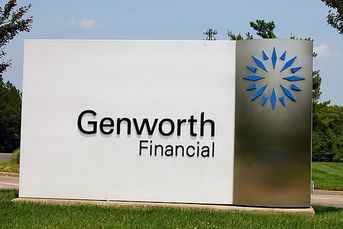For CPAs, it’s revenge of the nerds
Make way for the nerds. Certified public accountants may make a good living doing personal tax returns…
Make way for the nerds.
Certified public accountants may make a good living doing personal tax returns and auditing financial statements, but increasingly, they are looking to offer investment advice and financial planning services.
In the post-financial-crisis environment, geeky is good in financial planning. And CPAs, with their conservative image and trusted relationships with clients, may have a leg up on other investment professionals.
“Investors felt a lot of pain with the market declines, and there’s been a shift in emphasis from growing assets to protecting them. That plays to the strengths of CPAs,” said Louis Harvey, chief executive of Dalbar Inc., a consulting firm to financial service providers.
“They’re in a good position to take a larger share in the financial planning market,” he said.
Chris Benson, a 30-year-old CPA with a master’s degree in taxation, has that in mind. He has no problem with the conservative, green- eyeshaded, bean-counting stereotype of his profession.
Mr. Benson left national accounting firm Grant Thornton three years ago and joined his father’s Baltimore CPA practice — Lyle Benson & Co. — to focus more on investment advisory services.
“I know the stereotype. But I’m a people person and a nerdy accountant,” said Mr. Benson, who also holds the American Institute of Certified Public Accountants’ personal financial specialist designation.
“I enjoy helping clients in every area of their financial lives,” he said. “This is what I want to do, and I think a lot of other CPAs want to do it, too.”
GROWING ENROLLMENT
The growing enrollment numbers in financial planning programs suggest that CPAs see the opportunity.
Last year, 427 accountants sat for the certified financial planner exam, compared with 249 in 2010. The pass rate was 60%.
The number of CPAs earning the less well-known PFS designation offered by the AICPA was up 12% from 2010. The PFS designation is available only to CPAs.
Currently, 7,601 CPAs hold the CFP certification, making up slightly less than 12% of the total number of CFPs in the country, according to the Certified Financial Planner Board of Standards Inc. Another 5,065 hold the PFS designation.
Combined, that represents less than 4% of the 377,000 CPAs that the AICPA represents in the United States.
Kevin Keller, chief executive of the CFP Board, doesn’t see the PFS designation as major competition to his organization.
“The CFP is much more recognized by the public,” he said. “You take the fundamental knowledge that CPAs have, especially in the tax area, you marry it with the training and subject areas of the CFP, and you have a very powerful combination.”
For its part, the AICPA said that it is devoting more resources to its personal-financial-planning division.
The demand is coming ultimately from CPAs’ clients, said Andrea Millar, senior technical manager of the division.
“With the uncertain times, our members are seeing a lot more demand from clients for financial planning services,” she said. “In recent years, we’ve expanded our efforts to help them add that to their practices.”
Along with the PFS exam, which costs AICPA members $400 or $300 for those who are already members of the personal financial planning section, the organization is ramping up resources available to CPAs interested in financial planning.
For an extra $200 in annual dues, AICPA members have access to webinars and practice guides on financial planning subjects being offered by the organization. Last year, it hosted 44 such webinars, compared with 29 the previous year.
Through a third-party database, it also gives members access to data and articles on financial planning subjects.
They can get practice management help through the Fox Financial Planning network, which helps new advisers with work flow and customer service issues. The AICPA struck a deal for members to purchase discounted services from the company.
DIFFERENT APPROACHES
Internal surveys suggest that CPAs are taking a variety of approaches when it comes to offering additional services to clients, Ms. Millar said.
Some work on a retainer basis and others on the hourly basis to which CPAs are accustomed.
Most CPAs who are expanding their financial planning services choose to go the registered investment adviser route, Ms. Millar said.
“There are a lot of different ways for them to go about it, but the fiduciary standard aligns with the CPA code of conduct,” she said.
Michael Goodman, a CPA active on both AICPA and the New York State Society of CPAs committees, moved into financial planning 16 years ago, and as president of Wealthstream Advisors Inc. of New York, he now manages $230 million in assets.
“I originally tried to continue doing tax work on the side, but I realized you can’t be an expert on the side, so I focused on financial planning and investments,” he said.
The more traditional approach is for CPAs and their firms to add services in the investment and insurance areas to the tax work that forms the core of their business.
“In general, I think most CPAs are coming from a tax background, and they need more education on the investments and insurance side,” said Lyle Benson, who serves on the executive committee of the AICPA’s financial planning section.
He has offered both tax and broader financial planning services for 25 years.
“We’re in a natural position of trust with clients to expand into financial planning,” Mr. Benson said.
“The opportunity has always been there for CPAs,” he said. “I think a lot more of us are starting to see it now.”
Learn more about reprints and licensing for this article.




